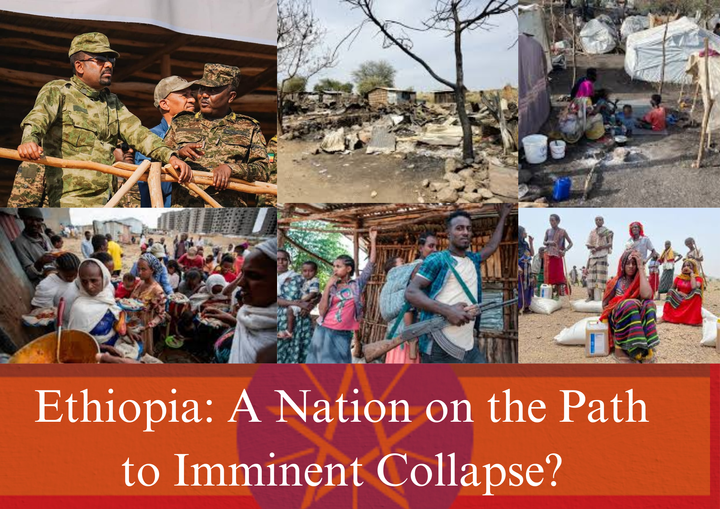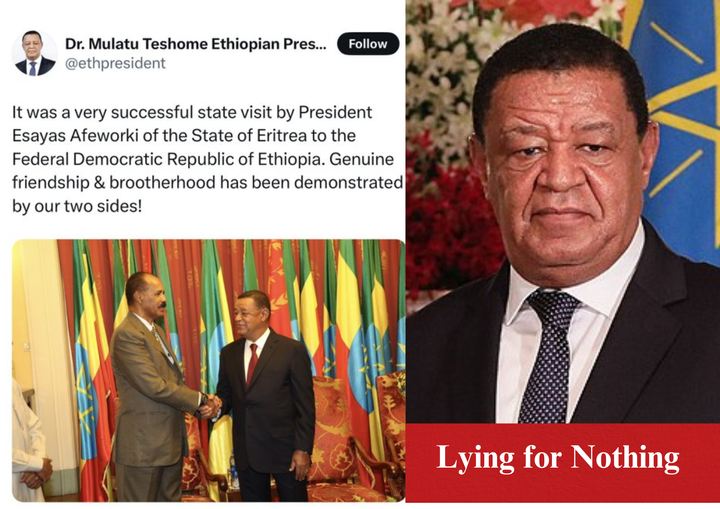Sudan's Stability and Regional Cooperation: A Pathway to Peace and Prosperity
Discover how regional cooperation and stability in Sudan are crucial for economic growth, security, and humanitarian relief in the neighboring countries.

Amanuel Biedemariam
Sudan, situated in one of the most significant geopolitical locations in the world, holds immense importance due to its size and strategic position. As one of the largest nations in Africa, Sudan shares borders with eight countries, namely Egypt, Libya, Chad, Central African Republic, South Sudan, Ethiopia, Eritrea, and the Red Sea. This unique geographical location brings opportunities and threats to the countries neighboring Sudan.
Sudan has abundant resources and vastness that present great economic prospects for the world and neighboring countries. The country is rich in minerals like gold, oil, and uranium, making it a magnet for potential investors and trade. Sudan also offers an opportunity for cross-border infrastructure development, such as energy projects and transportation networks, allowing for regional connectivity and economic growth. Additionally, Sudan's agricultural potential, especially in the Nile River basin, can support food security and regional agricultural cooperation across Africa and beyond.
However, the instability in Sudan poses significant challenges and threats to its neighboring countries. Sudan has experienced prolonged conflict, including violent conflicts in various regions. This instability has detrimental effects on regional security, with the potential to spill over into neighboring nations. Border disputes, cross-border trafficking, and the proliferation of arms are among the risks associated with the instability in Sudan, threatening the stability and development of the region.
Therefore, Sudan's stability is critical for the neighboring countries as it directly impacts their security, economic growth, and overall development. With stability in Sudan, the neighboring countries can advance their economies, attract investments, and foster regional integration. Political instability and violence hinder the establishment of a conducive environment for trade, investment, and cooperation among nations.
Moreover, the lack of stability in Sudan exacerbates humanitarian challenges, including the displacement of populations and the flow of refugees into neighboring states. The strain on resources and infrastructure in these countries increases, affecting their ability to provide adequate support and services to those affected by the Sudanese crisis. Therefore, Sudan's stability is intertwined with the stability and well-being of the entire region.
Preserving Sovereignty and Recognizing it Is an Internal Matter.
The summit of Sudan's seven neighboring countries in the Egyptian capital concluded on Thursday, with leaders reaching a significant agreement to end the ongoing violent conflict in Sudan. The heads of state and governments of the Central African Republic, Chad, Eritrea, Ethiopia, Libya, and South Sudan, along with the Chairman of the African Union and the Secretary-General of the League of Arab States, attended the summit convened by President Abdel Fattah El-Sisi.
During the summit, the leaders expressed deep concern regarding the military confrontations and deteriorating security and humanitarian situations in Sudan. They urgently called on the conflicting parties to de-escalate the situation and commit to an immediate and sustainable ceasefire to prevent further loss of innocent lives and destruction of property.
Preserving the Sudanese state and its institutions was also a priority. The leaders highlighted the dangers of fragmentation and chaos, which could lead to terrorism, organized crime, and threats to the national security of neighboring states and regional stability. Hence, respecting Sudan's sovereignty, unity, and territorial integrity, the leaders emphasized that the conflict is an internal Sudanese affair. They stressed the need to end external interferences that hinder efforts to reach a mutually agreed settlement and restore stability and security in Sudan.
The leaders addressed the humanitarian crisis, expressing the importance of formulating a comprehensive approach to its ramifications. They called for support to internally displaced persons and refugees fleeing the conflict, urging the international community and donor countries to fulfill their responsibilities in providing humanitarian aid as pledged.
The deteriorating humanitarian situation and repeated attacks on civilians, healthcare facilities, and public services were condemned. The leaders called for intensified efforts to provide crucial aid and address shortages of food and medical supplies in Sudan.
To facilitate aid delivery, the leaders agreed to coordinate the entry of humanitarian assistance through the territories of neighboring states. They emphasized the need for safe passages and the protection of aid personnel.
Highlighting the pressing need for a political solution, the leaders called for an inclusive and comprehensive national dialogue among Sudanese parties. They emphasized the importance of restoring stability and security while prioritizing the aspirations and well-being of the Sudanese people.
A significant outcome of the summit was the establishment of a Ministerial Mechanism comprised of foreign ministers from Sudan's neighboring states. This mechanism will coordinate efforts to resolve the conflict. It will develop an action plan to halt the fighting, engage with Sudanese parties, and discuss measures to address the crisis's impact on stability, unity, territorial integrity, and neighboring states. Additionally, the mechanism will establish a delivery system for humanitarian aid and relief.
The summit's conclusions, along with the support of the League of Arab States and the African Union, provide hope for Sudan and the region. The collective commitment of the participating nations to address the crisis underscores their determination to bring about peace, stability, and humanitarian relief.
The Importance of Egypt's Participation in Enhanced Regional Efforts
The active participation of Egypt can further enhance the successes of IGAD and the East African economic bloc. Although not a member of these organizations, Egypt's involvement is crucial for the completeness and effectiveness of regional initiatives. Recognizing the importance of Egypt's expertise, resources, and strategic position, creating a mechanism that includes Egypt becomes essential.
Egypt's unique geographical position as a bridge between Africa and the Middle East and its historical ties to the region provides valuable opportunities for fostering greater cooperation, addressing shared challenges, and promoting comprehensive regional development. Egypt's vast resources, technological advancements, and economic influence can be vital in advancing regional integration and addressing common concerns.
Including Egypt in the mechanism would provide a platform for meaningful dialogue and collaboration among all stakeholders. Egypt's involvement would ensure a more comprehensive and effective approach to addressing regional challenges, including those related to Sudan and beyond. By recognizing and embracing Egypt's importance, the region can unlock its full potential and pave the way for a more integrated and prosperous future.
To sum up, while Egypt may not be a member of IGAD or the East African economic bloc, its active participation is essential for the completeness and effectiveness of regional initiatives. Creating a mechanism that involves Egypt will enable the region to benefit from its expertise, resources, and strategic position. Recognizing and embracing Egypt's importance is crucial to achieving comprehensive regional development and fostering greater cooperation among neighboring countries.
Contact: Aman@nefasit.com




Comments ()